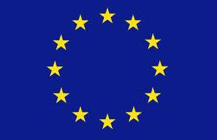Settlement Of Google-Europe Antitrust Claims Might Involve Labeling “Google Products” In SERP
This morning I read Danny Sullivan’s letter to the FTC about paid inclusion and search engine disclosures. It was prompted by NexTag CEO Jeffrey Katz’s article last week in the Wall Street Journal complaining about Google’s market dominance and alleged abuse of that position. Contained within Danny’s article is a potential face-saving solution to the […]

As you recall European Competition Commissioner Joaquin Almunia recently issued a statement that featured “preliminary conclusions” of the EU’s investigation into antitrust complaints against Google. It identified four areas of “concern”:
- The lack of easy portability of search campaigns to Google competitors (i.e., Microsoft)
- Exclusivity of Google-publisher advertising relationships surrounding AdSense
- Use of third party content (i.e., reviews) on Google’s “own” sites (e.g., Places or Hotel Finder)
- Concern over presentation of Google’s vertical content on the SERP (aka “search neutrality”)
As I wrote before, the first three concerns can probably be resolved. The fourth is much more difficult. It’s the “search neutrality” issue and goes to the heart of Google’s ability to control the SERP and evolve its product. Google Maps, for example, are a core part of Google.com according to the company. However European regulators and Google competitors see Google Maps (and other Google offerings) as separate products entirely.
Danny’s discussion of disclosing or labeling paid ads in search results, it struck me, is a potential solution to Google’s problem in Europe as well.
Google wants to be able to present rich content in the SERP, the Europeans don’t want to get directly involved in regulating the SERP and dictating the placement of results. However they want some mechanism to “balance” Google’s ability to “promote its own products” with competitors’ interests — or rather the interest of competition generally.
Let’s put aside for the moment whether Google could successfully defend a lawsuit or other legal process in Europe and win outright on the merits. It’s far from clear that the EC would “win” on the issue. But assuming Google wanted to settle — which it has been given until July 2 to do — it could offer to label its own content in search results, as it does with ads.
One question might be: what would the label say (e.g., “promoted content”)? But this approach might be a satisfactory compromise to the problem of how to treat Google Maps, etc. in the SERP. Critics would probably argue this is entirely symbolic and does nothing to the fact that they’re pushed down the page by Google’s “self-promotion.” But antitrust law isn’t intended to protect individual competitors but rather promote competition generally.
Absent some sort of labeling approach like this it’s unlikely that the parties can find a settlement on the issue of Google content promotion because the parties are so philosophically far apart on the question. There are other potential “procedural” approaches that might involve a complaint and review process and would keep the Europeans “out of the SERP.”
Regardless, it’s very unlikely that Google’s competitors are going to get what they want — for Google to minimize its own content in SERPs — without full scale litigation. Even then it’s unlikely they would succeed.
Related Entries
- EU Offers To Settle With Google Over Anti-Trust Claims
- Does The First Amendment Create A Complete Defense For Google Against Antitrust Regulation?
- Second Google-Sponsored Legal Report Argues Government Would Lose Antitrust Case
- How “Facebook Search” Could Help Google Escape The Antitrust Noose
- Page To Anti-Trust Critics: “Actions” & Google+ Are An Essential Part Of Search
- TheFind Joins FairSearch.org To “Restore Balance” To The Search Marketplace
- FairSearch.org Introduces Anti-Google “Good To Know” Ad Campaign
- To Understand Google Favoritism, Think “If Google+ Were YouTube”
- Study: Bing More “Biased” Than Google; Google Not Behaving Anti-Competitively
Contributing authors are invited to create content for Search Engine Land and are chosen for their expertise and contribution to the search community. Our contributors work under the oversight of the editorial staff and contributions are checked for quality and relevance to our readers. The opinions they express are their own.
Related stories
New on Search Engine Land